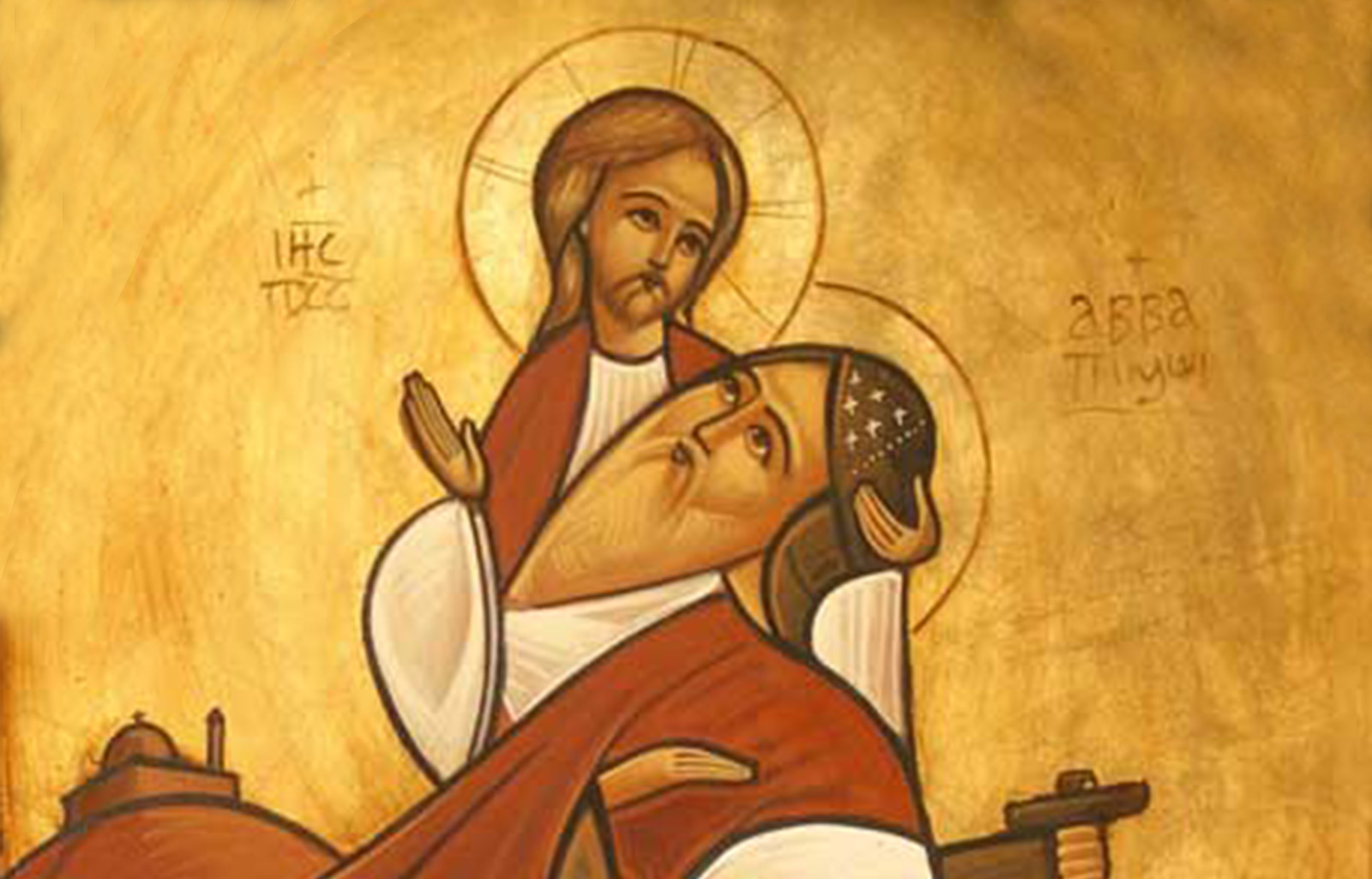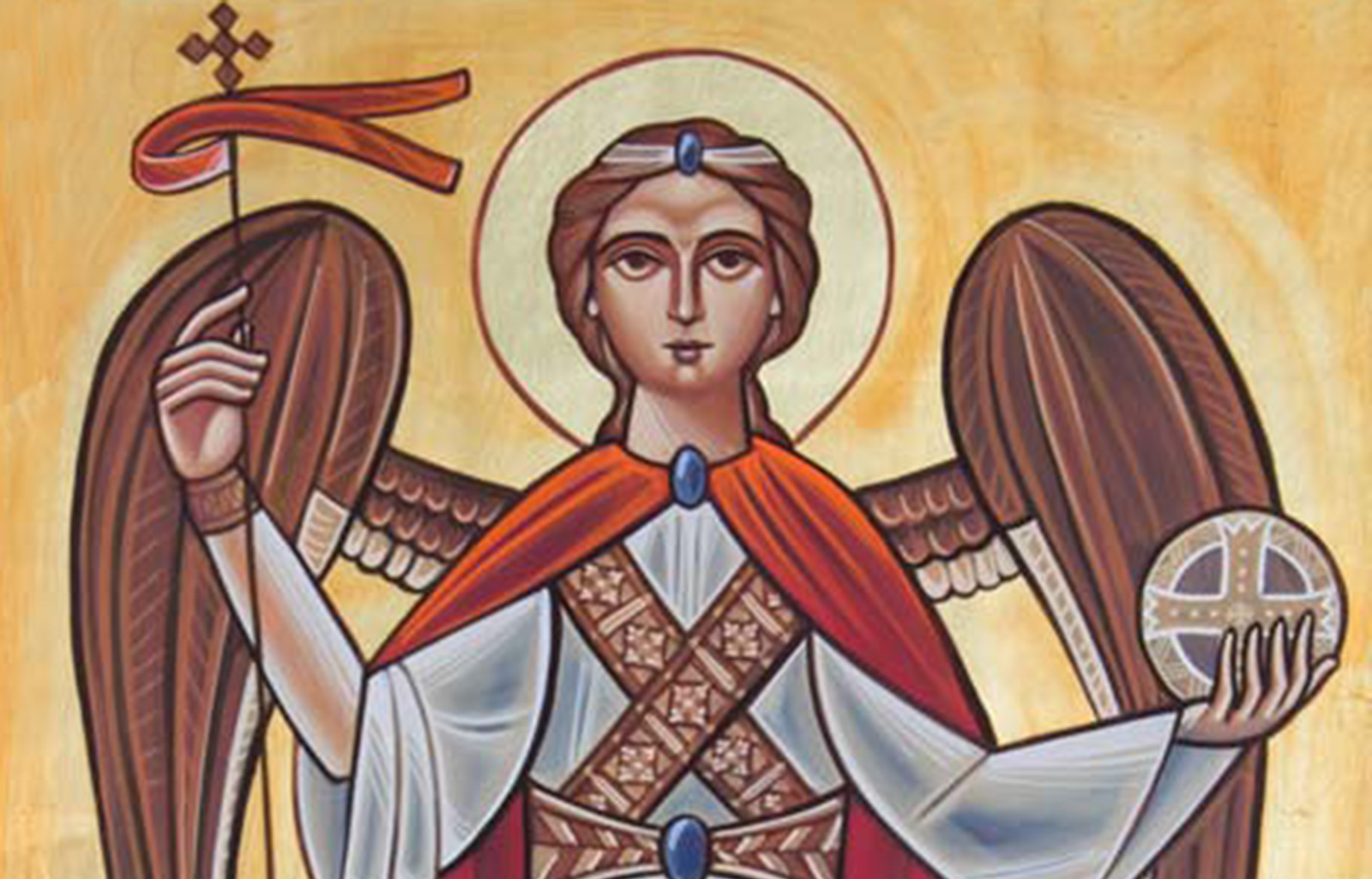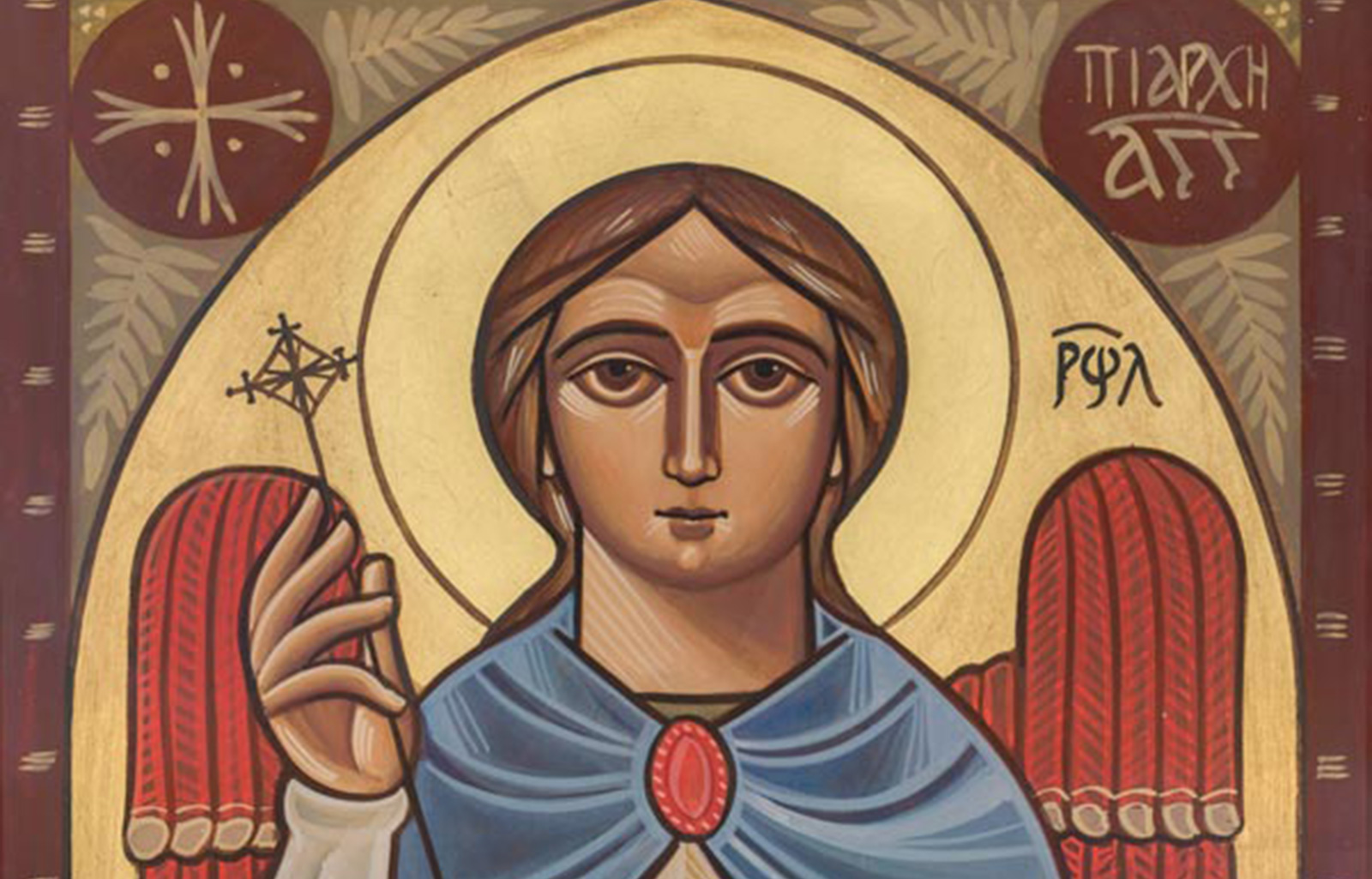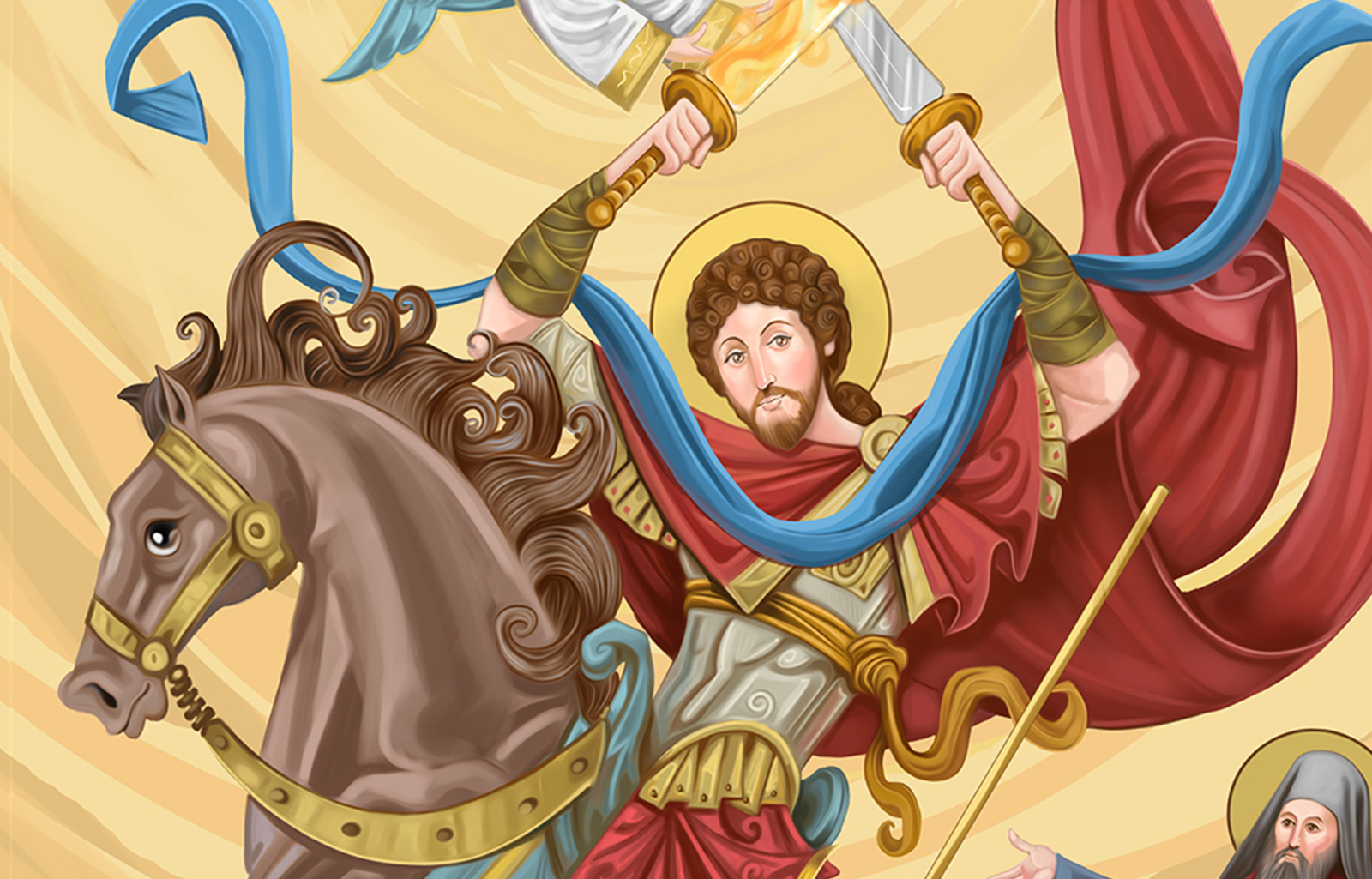St. Bishoy, whose memorial is honorable, the star of the desert, departed. He was born around 320 A.D. in a village called Shansa (Shensha or Shesna), in the province of Menoufeya in Egypt. He had six brothers. His mother saw an angel in a vision saying to her, “The Lord says to you, give Me one of your children to serve Me.” She answered, “Lord, take whoever you want.” The angel took the hand of Anba (Abba) Bishoy, who was thin and his body was frail. His mother told the angel, “My Lord, take one who is strong to serve the Lord.” “This is whom the Lord has chosen,” the Angel replied.
Later on, around 340 A.D., St. Bishoy went to the wilderness of Shiheet (‘Wadi-El-Natroun’ or Scete) and became a monk by the hand of Anba Bemwah (Bamouyah or Pambo), who also ordained St. John (Yehness) the Short a monk.
When Saint Pambo died, St. Bishoy and St. John prayed for God’s guidance, and an angel appeared to St. Bishoy, directing him to the site of the present monastery bearing his name, on which he was to live the life of a hermit. There, St. Bishoy became the spiritual father of many monks who gathered around him. He grew famous for his love, simplicity and kindness, as well as for his extremely ascetic life.
He was serious, loving seclusion and quietness, and full of wisdom. St. Ephrem the Syrian visited him, and Emperor Constantine and Jeremiah the prophet appeared to him in visions.
In one of those visions Emperor Constantine said, “Had I known how great is the honor of monks, I would have abandoned my kingdom and became a monk.” St. Bishoy told him, “You have banished the heathen worship and exalted Christianity, and has not Christ given you anything?” Emperor Constantine answered him, “The Lord has given me many gifts, but none of them is like the honor of the monks.”




